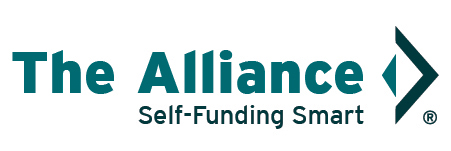What is Self-Funding & How Can It Benefit My Business?
By: Mike Roche, Director of Business Development
 Self-funding is when an employer pays for their employees’ health care out-of-pocket. Typically, employers set aside money into a “fund” or trust that’s earmarked to pay their employees’ claims.
Self-funding is when an employer pays for their employees’ health care out-of-pocket. Typically, employers set aside money into a “fund” or trust that’s earmarked to pay their employees’ claims.
Although self-funding has been used by large employers for decades – 91% of individuals are covered under a self-funded plan at businesses with 5,000+ employees – smaller employers have been slower to take on that risk. Until now.
As traditional PPOs and HMOs carriers continue to break records in profits and growth, employers are starting to view the pandemic as a boiling point and are jumping into self-funding.
Why Choose Self-Funding?
When employees don’t seek medical care – whether due to good health or a pandemic – employers don’t retain their savings, the insurer does. With self-funding, employers are rewarded for having a healthier workforce, so they incent their employees to be healthier. And when employees have the resources, education, and support to maintain their health, they’re also happier and more productive.
Here’s the top four reasons employers self-fund:
Significant Savings: No need to pay insurers or state taxes on premiums. And when total health claims are lower than expected, the employer gets to keep their savings (which can be substantial)
Complete Customization: Every employee population has different demographics, and self-funded employers can design their health benefits to suit their unique needs. And because self-funded employers aren’t bound by the network of a traditional insurer, they’re not confined to using a single health system; large and jumbo-sized self-funded employers are free to contract directly with providers, while smaller employers often opt to join a group-purchasing coalition.
Total Control: Employers have unlimited access to their data because they own it as a self-funded business. Analyzing this data helps self-funded employers identify health trends (like common chronic illnesses) within their workforce, unlocking significant savings opportunities.
Unprecedented Flexibility: Within the bounds of ERISA, employers can operate their health plan as they see fit, partnering
with whatever vendors they wish. And by bringing together like-minded vendor partners, employers can save even more by reducing waste and improving their employees’ health.
What Are the Risks of Self-Funding?
So, what happens when an employee or family member incurs an unpredictable, financially devastating claim? Self-funded employers typically partner with a stop-loss insurer to cover individual claims that exceed a predefined maximum allowed amount per employee – and for aggregate claims – which defends against catastrophic claims.
There’s also a considerable administrative burden on behalf of the employer to implement and maintain a self-funded health plan. That’s why employers often select a third-party administrator (TPA) to process their claims and a pharmacy benefit manager (PBM) to administer their prescription benefits.
Is Self-Funding Right for My Business?
Employers that choose self-funding aren’t just making a business investment, but a time investment and an investment into their employees’ health and wellbeing. Employers that make the switch can expect to save at least 15% in total costs in just a few years.
By self-funding with The Alliance, you gain total transparency of your claims data, and while other insurers make little attempt to improve network quality, our ever-growing Smarter Networks span more than 31,000 doctors and providers across the Midwest, which improves employee access and avoid out-of-network surprise billing.
As the voice for more than 285 self-funded employers, we find savings where others can’t – or won’t – using deep data mining and analytics. And as a not-for-profit cooperative that’s client-owned and led, your priorities are our priorities. We focus on your bottom line – not ours.
To learn how The Alliance helps employers self-fund smart, contact us.
About the author:
Mike Roche, Director of Business Development, joined The Alliance as member services manager in 2015 and is responsible for working with self-funded employers on health benefit strategies and sharing data insights to help them manage their spend.



 This post is locked to comments.
This post is locked to comments.
